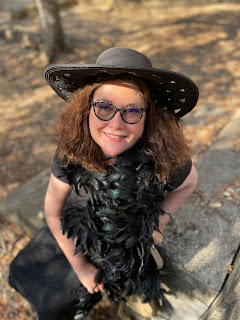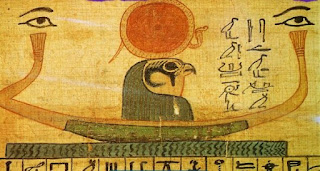Thursday, January 19, 2023: Jan Steckel's "Machetazos"
Jan Steckel left a busy pediatric practice caring for mostly Spanish-speaking children to work as a poet, writer, and medical copyeditor. She is Jewish, bisexual, and disabled by chronic pain. Her poetry book The Horizontal Poet (Zeitgeist Press, 2011) won a 2012 Lambda Literary Award. Her fiction chapbook Mixing Tracks (Gertrude Press, 2009) and poetry chapbook The Underwater Hospital (Zeitgeist Press, 2006) also won awards. Her fiction and poetry have appeared in Scholastic Magazine, Yale Medicine, Bellevue Literary Review, Canary, Assaracus and elsewhere. She lives in Oakland, California.
Machetazos
Today Benita Miller de Robinson will carry water with one arm. She will cook cassava root and sweet potato and yams in an iron pot over illegally made charcoal. She will clean the house and brush all the dirt out the front door with a homemade broom. She will empty her second-to-youngest son out of the dish-washing tub so she can wash the dishes. She will beat her clothes and those of her husband Pasho and ten surviving children between rocks by the riverside. While she is doing all these chores, she is also taking care of the children, because if a girl tears a new rip in her clothes, or one of the boys hits a girl from another household, or if the roots are not cooked or the clothes not washed, her husband Pasho might beat her when he comes back from his conuco.
Pasho Robinson left early with his machete and his brother-in-law’s mule for the conuco, or plot of land on the hillside that he cultivates most days. The conucos were originally parcels given by masters to sharecropping slaves to tend. The same name sticks to the bits of land now that Benita and Pasho are nominally free. Pasho has a plot of land in the communal rice marsh between the ocean and the mountains, and a conuco up in the hills. There he grows yuca or cassava root, yams, sweet potatoes, another tuber called yautía, plantains, bananas, figs, pomegranates, grapefruits, papayas, chestnuts, cherries, breadfruit, tamarind, and other fruits that may have no English names, mamey, guanábana, chinola, parcha, limoncillos, all for his family’s viveres or provisions. For cash he grows coffee, cacao and coconuts. The palm fronds supply him with yagua for thatching his roof. He cannot afford a zinc roof that would make such a lovely clamor in the torrential rains. The wealthiest families cannot hear each other speak inside when the rain gets heavy enough, because of the thunderous drumming on their metal roofs. He doesn’t cut cane on the plantations west of Samaná; that’s work for Haitian migrants.
Benita thinks that Pasho has gone to the conuco, but she can’t be sure. He might have gone to be with a woman. That would only make him more of a man. The married driver of the guagua or pick-up truck that shuttles loads of people back and forth between the towns boasts of the bastards he has in all the towns along the way. Sometimes when the guagua is late, the people waiting know that the driver is in the arms of his favorite mistress at the beach at the end of the line. They go back to their houses for an hour or two, because they recognize that he is a prodigious lover.
It is another thing for a wife to be unfaithful. Pasho came home one day and struck Benita eight machetazos or blows with his machete blade because he thought she had been with another man. When she left the Samaná hospital, she could not move her left arm. Of course she went home to her husband. She had five little children. What else could she do? And after all, said the gossips, it was Benita’s fault for holding herself aloof from the man for so many months and making him think she had a lover.
In her kitchen garden, Benita grows chili peppers and sweet peppers, summer squash, melons, hibiscus flowers, yerba buena (mint) and yerba luisa, oregano and sweet basil, apples-of-gold, avocados, mangos, sour oranges and sweet oranges. She had chickens once, a hog and a turkey, but the animals are long gone, converted into the flesh of ten growing children by the action of jaws and digestion. She grows fava-like beans called guandules, but onions and garlic, lanterns and machetes, cooking pots and wash-tubs, kerosene and soap, needles, cloth and thread, along with the red beans and rice that are the staples in good times, must all be bought in the town of Samaná, or purchased at a mark-up from peddlers who pass by Villa Clara.
Black beans are so expensive that they are only used to make moro, so-called because the few black beans scattered among the mounds of white rice look like sparsely dispersed Moors among the Spaniards. Today there is just a pot of mixed tubers on to boil. Before the light fades, Benita must also do her mending. She has always been known as a good seamstress. Her needle moves nimbly. She has got very good at tying knots one-handed, like a surgeon.
© 2023 Jan Steckel




Comments
Post a Comment